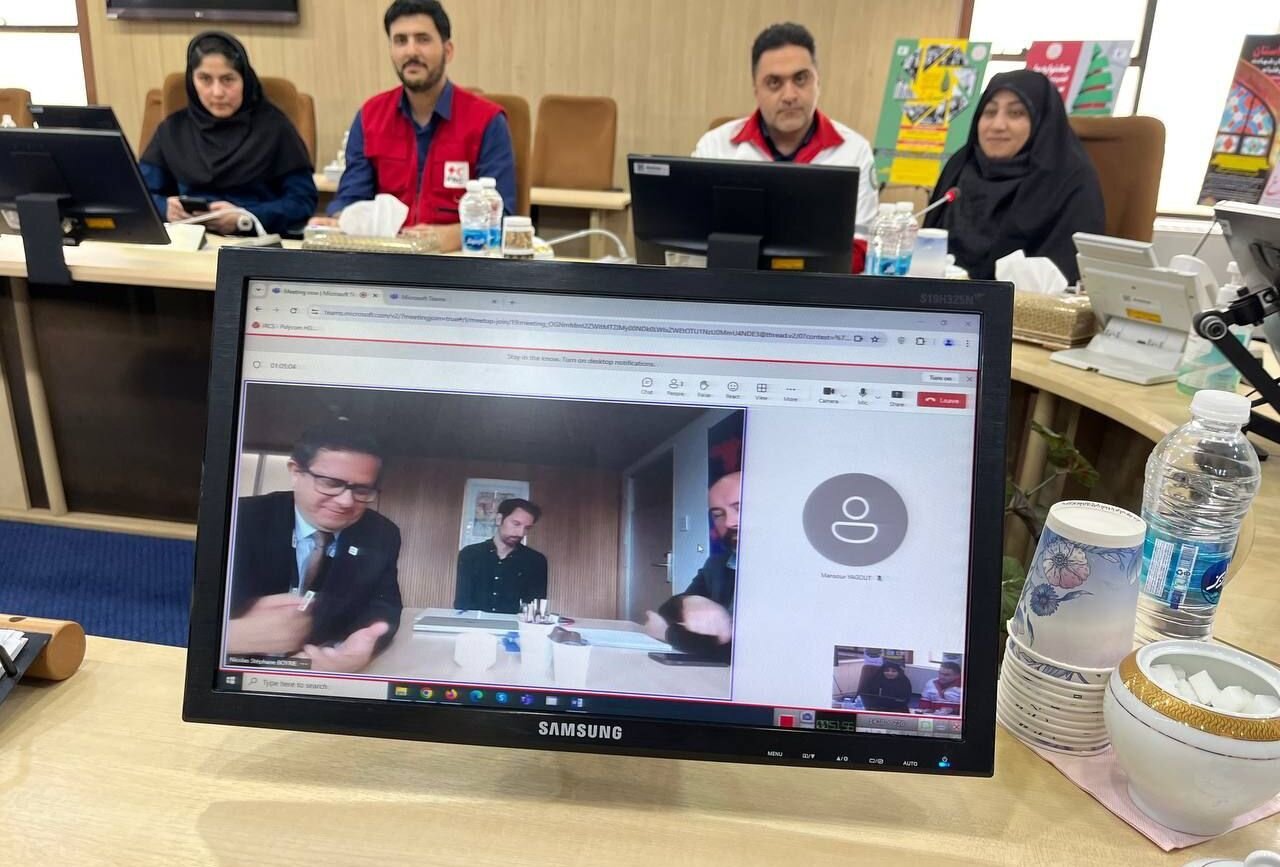IFRC committed to assist IRCS

TEHRAN –The International Federation of Red Cross and Red Crescent Societies (IFRC) has announced its commitment to support and assist the Iranian Red Crescent Society (IRCS).
Referring to the challenges faced by sanctioned countries, including Iran, Xavier Castellanos Mosquera, the IFRC undersecretary general for national society development and operations coordination, has assured to assist these countries in tackling their problems.
Castellanos Mosquera made the remarks during a video call with Razieh Alishvandi, the IRCS director for international affairs, on April 16, according to the IRCS website.
The IFRC official went on to laud the emergency response activities and the services provided by IRCS during emergencies, calling it essential to introduce them as a role model for other societies.
During the meeting, Alishvandi elaborated on some of the taken measures by the IRCS in response to various incidents.
Within the last 2 years, she said, the IRCS provided different services to the victims affected by an earthquake in Khoy city and floods in Sistan–Baluchestan province.
Alishvandi went on to highlight that the IRCS needs additional support from the IFRC to address the challenges caused by drought and assist victims of natural hazards in the country.
In the end, the two officials highlighted the need to boost cooperation to promote the activities of IRCS and its capabilities at the international level.
IRCS recent services
The IRCS offered first-aid training services to more than four million people from March 14 to April 5.
Some 63,000 other people also received rescue services.
Among 4,370 operations and services carried out by the IRCS, 2,525 were rescue operations, ISNA quoted Babak Mahmoudi, an IRCS official, as saying.
The IRCS provided emergency shelters for 3,931 individuals, treated 5,257 wounded people, and transferred 1,567 others to health centers.
Moreover, within the framework of a program initiated on March 14, more than four million individuals were trained in first aid by the IRCS trainers, and 400 others received online training.
Also, kids were made aware of natural hazards, such as floods and earthquakes, and other dangers using virtual reality or playing games.
Holding joint workshop
A training workshop focusing on lowering harms caused by drug addiction was held with the cooperation of the IRCS and Villa Maraini Foundation of Italy in Tehran in December 2023.
Pirhossein Kolivand, the head of the IRCS, and Massimo Barra, the head of the Villa Maraini Foundation, met on the sidelines of the event.
Kolivand stated that drug users encounter severe health issues, suffering from an identity crisis which leads to their exclusion by both their families and society, the IRCS website reported.
However, initiative projects, such as Harm Reduction on Drug Addiction, serve the purpose of educating and offering healthcare to these individuals, enabling them to reintegrate into society, reunite with their families, and restore self-esteem.
Barra, for his part, emphasized the significance of the problems resulting from drug addiction. Since a large number of individuals are globally affected by addiction, it is crucial to provide them with additional support through greater cooperation, he added.
Dispatching volunteers to deprived area
In December 2023, volunteer physicians were sent to provide free health and pharmaceutical services to people in deprived areas, an official with the IRCS said.
The program was implemented on the occasion of World Volunteer Day, commonly known as IVD, which is celebrated on December 5 every year.
It's a day where volunteers are acknowledged and the spirit of volunteerism is promoted at the local, national, and international levels.
“Volunteer physicians would be sent to deprived areas from Ilam, Kermanshah, Yazd, Bushehr, Markazi, West Azarbaijan, and Kerman provinces to serve the people in these areas,” Vahid Salimi said.
They would provide free health and pharmaceutical services, including visiting patients, dental and midwifery services, and traditional medicine and acupuncture consultation.
They would also check people’s health, blood pressure, height, and weight.
Moreover, oral and dental health care would be taught to the students of the villages.
The main objective of dispatching volunteers was to improve the health of the villagers due to the unavailability of specialist doctors in these areas and reduce medical expenses.
MT/ MG
Leave a Comment